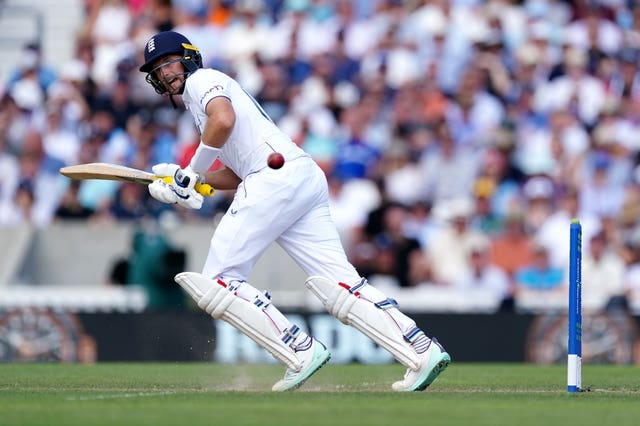
Joe Root has led calls for cricket’s powerbrokers in this country to reform a clogged domestic schedule that is causing widespread concern among players fearful for their well-being.
The squeeze on the summer programme was heightened by The Hundred’s introduction in 2021 and research conducted by the cricketers’ union ahead of this season suggests it is taking a toll on the players.
Windows for proper rest and recovery are becoming increasingly sparse, with Root and many of his peers agreeing this not only affects players physically and mentally but the spectacle as a consequence.

Root accepted there is no silver bullet to satisfy all stakeholders but the England and Yorkshire batter insisted there is some middle ground to be had to improve player welfare and plug the gulf between county and international set-ups.
“I am extremely passionate about county cricket and it is apparent the schedule needs to change to see long-lasting benefits for English cricket,” said Root, who in his tenure as England captain two years ago said players were making it into the Test team “in spite of county cricket, not because of county cricket”.
“You’re trying to find a way of getting the standard of first-class and county cricket as close as you can to the international game.
“If we can find a way of making it so that gap is smaller and the product is better, everyone is going to be winning. Everyone wants to see the best possible product.
“Having space to recover, prepare and improve your game during the season is crucial and the creation of minimum standards to protect travel windows and player welfare is non-negotiable.”
The Professional Cricketers’ Association pointed to 81 per cent of respondents to its survey being concerned about the fixture list from a physical standpoint as one of the reasons the schedule is unfit for purpose.
Two thirds indicated it is ill-suited to high-performance, while 76 per cent raised safety concerns about travelling to and from matches, especially having to drive late at night.
This is especially acute in the T20 Blast, with the number of back-to-back matches or three in four days rising from last year, often finishing late, meaning the players clock up considerable road miles.
“Our concern is we want to pre-empt anything before something disastrous happens,” said PCA chief operating officer Daryl Mitchell. “Driving late does concern me.

“There’s definitely reports of players telling us they’ve got off the team bus and driven home and forgotten how they got there. Switching off while driving, there is an element of danger to that.”
Mitchell believes there is “sympathy and understanding” from the England and Wales Cricket Board about the plight of players but “in the wider county network with chairs and members, probably not so much”.
A reduction in fixtures has been mooted on several occasions but the PCA is attuned to commercial needs and prefers a collaborative approach, with Mitchell pointing out a possible solution in the Blast.
“The power constitutionally is with the county chairs in terms of voting on any change of structure,” added Mitchell.
“If you look at the Blast schedule, I’m not sure there are any games on a Monday or a Tuesday night. Maybe using that Wednesday to Sunday window rather than Thursday to Sunday, you just create a gap in between some of the games.
“There’s work that could be done in that area without reducing any cricket at this stage. A reduction in that format is a possibility but it’s not necessarily the priority.
“Having those three-day gaps between the County Championship games and at least one day in between T20 cricket to recover – that’s the starting point.”
With 66 per cent of those the PCA surveyed declaring there is too much county cricket, the organisation’s chair and Glamorgan bowler James Harris added: “The schedule does not work, we cannot accept these words with no action for any longer.”
An ECB spokesperson said: “As the PCA recognises, the men’s domestic schedule is a complex issue.
“The players have an important voice in discussions around this, and we are committed to working with them and the first-class counties to discuss the best ways of overcoming some of the challenges.”


Comments: Our rules
We want our comments to be a lively and valuable part of our community - a place where readers can debate and engage with the most important local issues. The ability to comment on our stories is a privilege, not a right, however, and that privilege may be withdrawn if it is abused or misused.
Please report any comments that break our rules.
Read the rules here